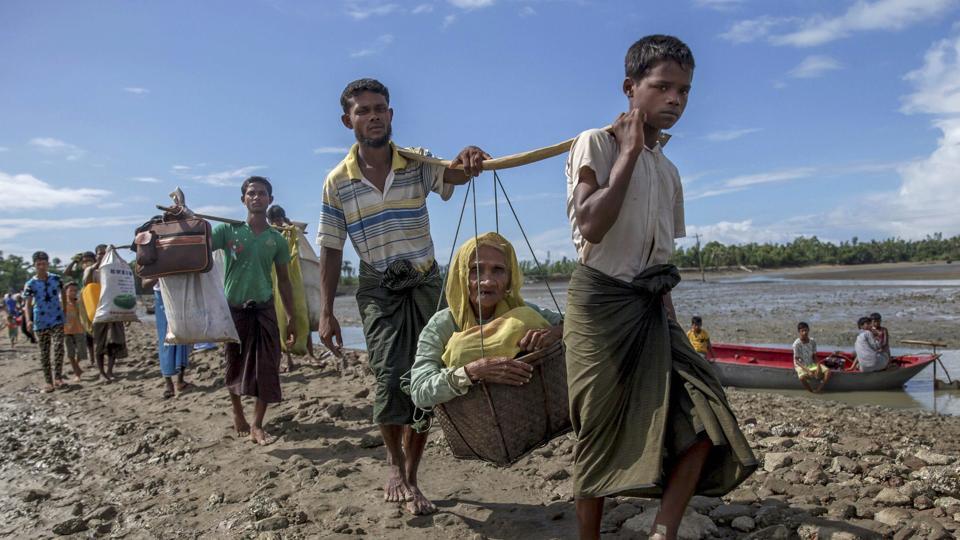By Rajashree Ghosh
INDIA New England Columnist
While the conundrum of change undergoing presently in the United States, there is an innate urge to latch on to words and phrases that lend meaning and substance. For me, Pax et bonum, runs through my mind. It took me to my school years in India which instilled some of St. Francis of Assisi’s motto of peace and goodwill. The vivid memory of the crest displayed on the school chapel, letterheads, on our jackets with pride that decades later it still bears immense weight and significance.

I was left a tad bit surprised that Obama’s farewell speech stirred in me values that were familiar from school or home, yet it was somewhere buried or pushed to the sidesteps of the memory lane. His speech transcript reads, “For blacks and other minorities, it means tying our own struggles for justice to the challenges that a lot of people in this country face – the refugee, the immigrant, the rural poor, the transgender American, and also the middle-aged white man who from the outside may seem like he’s got all the advantages, but who’s seen his world upended by economic, cultural, and technological change.” And further, “For native-born Americans, it means reminding ourselves that the stereotypes about immigrants today were said, almost word for word, about the Irish, Italians, and Poles. America wasn’t weakened by the presence of these newcomers; they embraced this nation’s creed, and it was strengthened.”
The recent “ban” issued by the executive order continues to escalate anxieties especially among immigrants. And this, among Indian travelers to the United States, including those with valid visas, Green cards, and even American citizenship, following sporadic incidents of secondary inspection and detention at US airports. Families and friends with the coveted H1 B visas are awaiting and are fretful about their future. The U.S. grants 65,000 H-1B visas to skilled workers every year — and an additional 20,000 to foreigners who graduated from American universities. In 2013, about 27,000 of those visas went to workers in the Bay Area, according to the Brookings Institution. Tech companies need those workers to fill jobs requiring advanced science and math skills
The draft order targets those visas as well as visas granted to college students participating in summer work abroad, temporary agricultural workers and others, stating those programs “should be administered in a manner that protects the civil rights of American workers and current lawful residents, and that prioritizes the protection of American workers — our forgotten working people — and the jobs they hold.” The draft order directs government agencies to analyze the impact the visa programs have on U.S. jobs, and to write new regulations to protect U.S. workers. While many universities have issued notices that affirm their position as inclusive and one that will not permit immigration and customs enforcement (unless of course there is imminent risk to the health and safety of others), many students of Indian students have been asked to refrain from traveling in the next 90 days.
The metalanguage framing current discourse sets the tone for otherness. At the ground level it translates to sanctioning divisiveness with much alacrity and impunity. The news of Jewish temples being targeted, mosques coming under attack and the vicious attack that killed Srinivas Kuchibhotla, after he was shot at a bar in Olathe hit home how dire the situation is. As an engineer working with Garmin, Srinivas was called out to be part of the “them” who was asked to go back to where he belonged. This violence left a family with a deep sense of loss and grief, it also shattered the fabric of this country’s principles revealing the bare weakness of human belief and justice system. A heinous crime such as this that killed an immigrant and hurt two others is not even addressed as national exigency.
A nation that developed safe-haven for immigrants since it was built by them and for them is now turning its back on them. Where are these safe spaces now? The mounting numbers of disenfranchised comprising women, people of color, transgender and LGBTQI populations wonder if this country can be free of bias, conflict, criticism, or potentially threatening actions, ideas, or conversations.
For those of my friends who were fortunate to participate in the marches in January returned even more determined to resist misogyny and lend their discerning voices to issues like health care, climate change and immigration that they see as either harmful or hateful. I am still latching on to peace and goodwill. What’s the harm in seeing these virtues strengthened and not erased? None.
(Rajashree Ghosh is a Resident Scholar at Brandeis Women’s Studies Research Center.)











